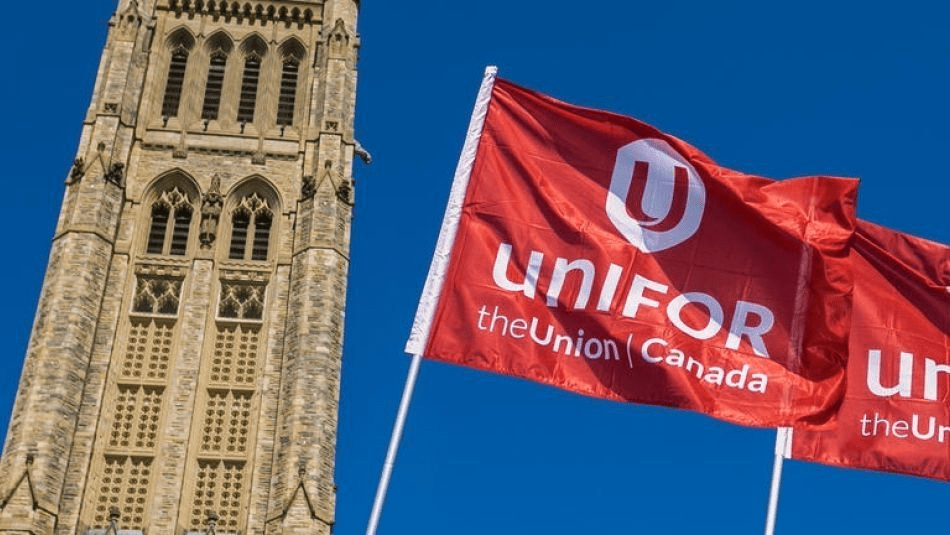
Share
Unifor members at DHL Express Canada locations across the country have voted 97% in favour of strike action. While Unifor always remains committed to reaching an agreement at the bargaining table, we are prepared to use our right to strike.
DHL Express has likewise filed notice of its intent to lockout workers.
As we engage in bargaining, and in advance of the June 8th strike deadline, we expect DHL to bargain in good faith with the Union to negotiate a renewed collective agreement that respects workers.
However, Unifor has learned that DHL has implemented a strategy geared towards undermining the new anti-scab legislation:
- DHL has bused in hundreds of replacement workers to tour the DHL facility in Hamilton, Ontario, in order to begin training them in advance of any work stoppage.
- Unifor is investigating reports that these workers were blatantly paraded in front of employees all while the parties were working at the bargaining table prior to the strike deadline.
In the event of a strike or lockout, Unifor will seek strict compliance with the new federal anti-scab legislation that comes into force on June 20, 2025.
In our view, not only is DHL’s conduct clear evidence of bad faith bargaining but also an attempt to undermine the imminent legislative amendments prohibiting the use of replacement workers.
Bill C-58, an Act to amend the Canada Labour Code and the Industrial Relations Board Regulations received royal assent on June 20, 2024. The legislation restricts federally regulated employers, including DHL, from using replacement workers to perform the work of bargaining unit members who are on strike.
Pursuant to the amendments section 94(4) of the Code prohibits DHL from using the services of the following people to perform all or any part of the work of our members while they are on strike:
a) managers or employees who work in a confidential capacity related to industrial relations, if the manager or employee is hired after notice to bargain was given;
b) any contractor, other than a dependent contractor, or employee of another employer;
c) any employee whose normal workplace is a workplace other than one at which our members are on strike or who was transferred to a workplace where the strike is taking place after notice to bargain was given; and
d) any volunteer, student or member of the public.
Unifor is prepared to act quickly to seek enforcement of this legislation in the event DHL attempts to use replacement workers.
We expect the Canada Industrial Relations Board to investigate the use of replacement workers by an employer during a strike and issue all appropriate orders, including an order that such activities cease and fines of up to $100,000 per day.
I am available for any discussions on this matter, or to provide more information if needed.
Sincerely,
Lana Payne
National President
cc. Bruce Snow, Assistant to the National President, Unifor
Steve Cotton, ITF


